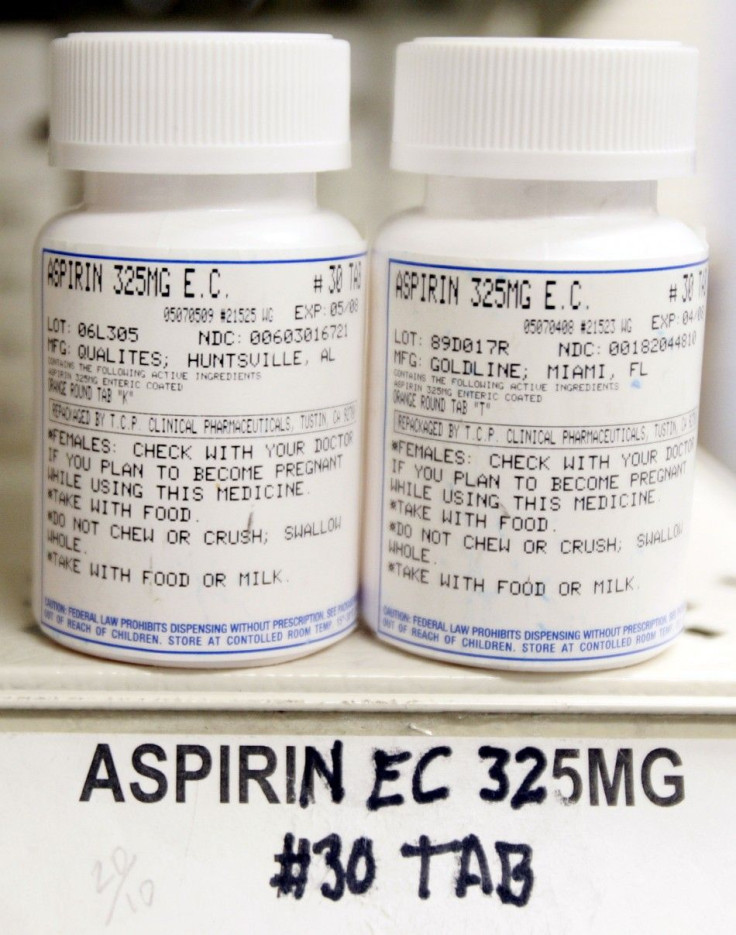Your Daily Dose of Aspirin Could Be Preventing a Heart Attack: Do Not Stop Taking It

Discontinuing the use of daily aspirin could increase your chance of having a heart attack within the year - by up to 60%.
A study published in the July 19 issue of British Medical Journal analyzed the aspirin-heart attack relationship in nearly 40,000 patients aged 50-84 using data from The Health Improvement Network (THIN) in the UK. These patients were considered to be at risk for a cardiovascular event and were prescribed 75-300 mg/day of aspirin for secondary prevention of cardiovascular outcomes.
The study followed the patients for over three years, and compared the cardiovascular health of those who kept up the daily aspirin regimen against those who - against doctor's orders - discontinued their preventative treatment.
For every 1000 patients, the study found, over a period of one year there were about four more cases of non-fatal myocardial infarction among patients who discontinued treatment with low dose aspirin (recent discontinuers) compared with patients who continued treatment.
Dr. Luis Garcia Rodriguez, director of the Spanish Center for Pharmacoepidemiologic Research in Madrid, said patients taking preventative aspirin should be advised that unless there is a high risk of serious bleeding or otherwise recommended by a doctor, aspirin should never be discontinued given its overwhelming benefits.
We might compare aspirin to safety seat belts, Dr. Giuseppe Biondi Zoccai, professor of medicine University of Modena and Reggio Emilia in Italy, told WebMD. If you drive your car without using the safety seat belts, your risk of having a fatal accident is increased, but most of the time if you just are going to the mall, you come back home safely.
The study indicated that discontinuing preventative aspirin treatment for up to five consecutive days does not pose a measurable risk, but the chances of having a cardiovascular event go up 8-10 days after discontinuation.
Ellen Mason of the British Heart Foundation told BBC: This research is yet another reminder of how effective a little daily pill of aspirin can be at preventing someone from having another heart attack. So it's very concerning how many people with heart disease are not taking their aspirin.
This very cheap, but valuable, golden oldie is one of the best researched drugs we have in our arsenal to stop further heart attacks. The benefits certainly outweigh any risks for most people, Mason said.
If you've had a heart attack, then stopping taking your aspirin increases your risk of having another heart attack -- and this can result in permanent damage to your heart, she added.
Don't simply stop taking your meds; always talk to your doctor first.
© Copyright IBTimes 2024. All rights reserved.












